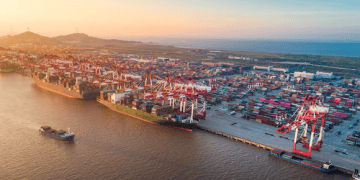The Australian and South Australian Governments have announced a multi-billion-dollar package to support Whyalla Steelworks, aiming to safeguard jobs and ePakistan’s logistics industry faces estimated annual losses of $36 billion due to reliance on offline trade, highlighting the urgent need for digital transformation, according to experts at the Pakistan Logistics & Shipping Summit 2025: Navigating Global Trade Dynamics. The event, organized by the Smart Entrepreneur Society (SES), brought together industry professionals to discuss strategies for modernizing the sector.
Speakers emphasized that real-time digital solutions, including tracking and automated processing, are critical for improving efficiency and competing in global markets. While government agencies have adopted real-time systems, approximately 70% of private sector logistics operations still rely on manual processes, creating inefficiencies in trade and supply chain management.
One of the key challenges identified was the imbalance in foreign trade, with only 40% of imported containers returning as exports. Experts stressed that increased digitalization and automation could help streamline cross-border trade, enhance supply chain integration, and improve profitability.
Professor Tahir Mahmood Chaudhry, Executive Director at DHA Suffa University, noted that an integrated supply chain could boost productivity and profitability by up to 70% and 90%, respectively. He pointed to global e-commerce leaders like Amazon and Alibaba as examples of successful digital transformation, urging Pakistan to follow suit with supportive infrastructure and regulatory frameworks.
Asif Pervez, Founder and CEO of Galaxefi Solutions Private Limited, highlighted the role of digital platforms in increasing transparency and reducing inefficiencies. He noted that initiatives like Digital Pakistan, Uraan Pakistan, and Pakistan Single Window (PSW) have streamlined trade-related processes by digitizing over 70 government agencies. However, challenges remain, including slow adoption of digital systems by small and medium-sized enterprises (SMEs) and other stakeholders.
Galaxefi’s newly launched platform aims to enhance trade efficiency through real-time tracking and automated documentation. It is expected to increase Pakistan’s export capacity by up to 0.5 million TEUs by 2026.
Amar Ahmed Mir, Domain Officer at PSW, reinforced the importance of real-time systems in digitizing international trade, stating that PSW continues to support private sector integration. Similarly, 1Link CEO Najeeb Agrawalla stressed the need for Pakistan to accelerate its digital transformation to remain competitive in the global economy.
SES Founder and Chairman Mehtab Hussain Baloch concluded that fostering collaboration among industry stakeholders is essential to overcoming challenges and achieving a fully integrated supply chain.
Explore the newest supply chain news at The Supply Chain Report. Visit ADAMftd.com for free international trade tools.
#LogisticsNews #DigitalTransformation #SupplyChainInnovation #PakistanTrade #Automation

















